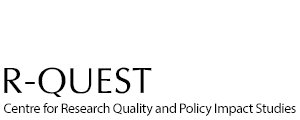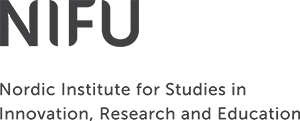Research strands
Strand 1: Understanding high research quality
How are notions of research quality negotiated, established and transmitted?
Since the mid-1980ies, negotiating and establishing notions of research quality has shifted from being the domain of specialised knowledge communities, to become a complex process involving negotiating the interests of the research policy environments and funding agencies (policy dominated research spaces) on the one hand, and the knowledge communities/research organisations (science oriented research fields) on the other. This implies that e.g. considerations for ‘accountability’ and ‘usefulness’ are permeating the process of establishing and maintaining notions of research quality. We see increased emphasis on the importance of research for the society at large, as well as on ‘excellence’ and ‘path-breaking research’.
In this strand we will study the notion of quality in different domains – including national and European policy arenas/funding agencies, interdisciplinary, applied and disciplinary research communities – as well as the interactions between them. The aim is to better understand the foundations and politics of the notion of research quality.
Strand leader: Liv Langfeldt
Strand 2 Conditions for high research quality
Changing governance regimes (from academic oligarchy to New Public Management) including changes in regulatory framework conditions and funding rationales are influencing the institutional and organizational conditions of research organizations. This has however developed differently in different countries, generating different conditions for research. Studies addressing these issues have so far primarily focused on explaining differences on the i) macro-level, e.g. issues pertaining to the national innovation systems, and ii) differences on the micro-level, while few have combined the micro, meso and macro-level. In this research strand, we will link these three levels and enhance our understanding of the individual, local, organizational, institutional and national factors contributing to high research performance.
To tackle these issues this strand is divided in two.
Strand 2a: Country level studies
How do we understand and explain national research performance? What are the links between national policy configurations and performance at the systemic level? To what extent do database-changes, increased internationalisation, preferential attachment mechanisms etc. influence our measurements?
These are central research questions in this Strand which in different national contexts will examine the long-term relationships between changes in policy (including changes in the funding mechanisms, funding volume, governance mechanisms, training- and recruitment mechanisms etc.) and changes in in research performance measured on various publication- and citation indicators.
Strand leader: Kaare Aagaard
Strand 2b: Research groups and organisations
How is quality negotiated between researchers (representing different research fields) and the university management? How do local organisational capabilities (e.g. internal policies, career systems, allocation of resources) and the institutional environment make a difference for the conditions of high quality research? How do different mechanisms for evaluating research quality (e.g. indicators, peer review) affect the practices of the organisation and the researchers?
This strand will explore the role of the research organisations (universities, university hospitals, public research institutes) in developing and facilitating high quality research. We will do this through surveys and case studies of research groups in different research organisations, different fields and in different national contexts.
Strand leader: Siri Brorstad Borlaug
Strand 3 Effects on society and economy
What is the relation between scientific and societal impact? To what degree can societal impact be documented and measured? And how is societal value created in various fields of research? Can interacting with society and creating societal value be regarded as an aspect of research quality, or is societal impact independent of research quality? Can societal impact be hampered or enhanced by how it is organized and funded? Does mission-oriented research generally have more societal relevance and impact than academic research?
These are some of the research questions that we will explore in this strand, where the relation between research quality and societal impact will have the main focus. We will collect international experiences from documenting and evaluating societal impact, and we will design and perform our own empirical projects. Studies of societal impact of research is a relatively new field that also depends on the development of concepts. From different perspectives, societal impact can be seen as a result or a process, as and end product or as an interaction, as an external or internal value in research, as something helpful, but also as possibly harmful to society.
Strand leader: Gunnar Sivertsen

